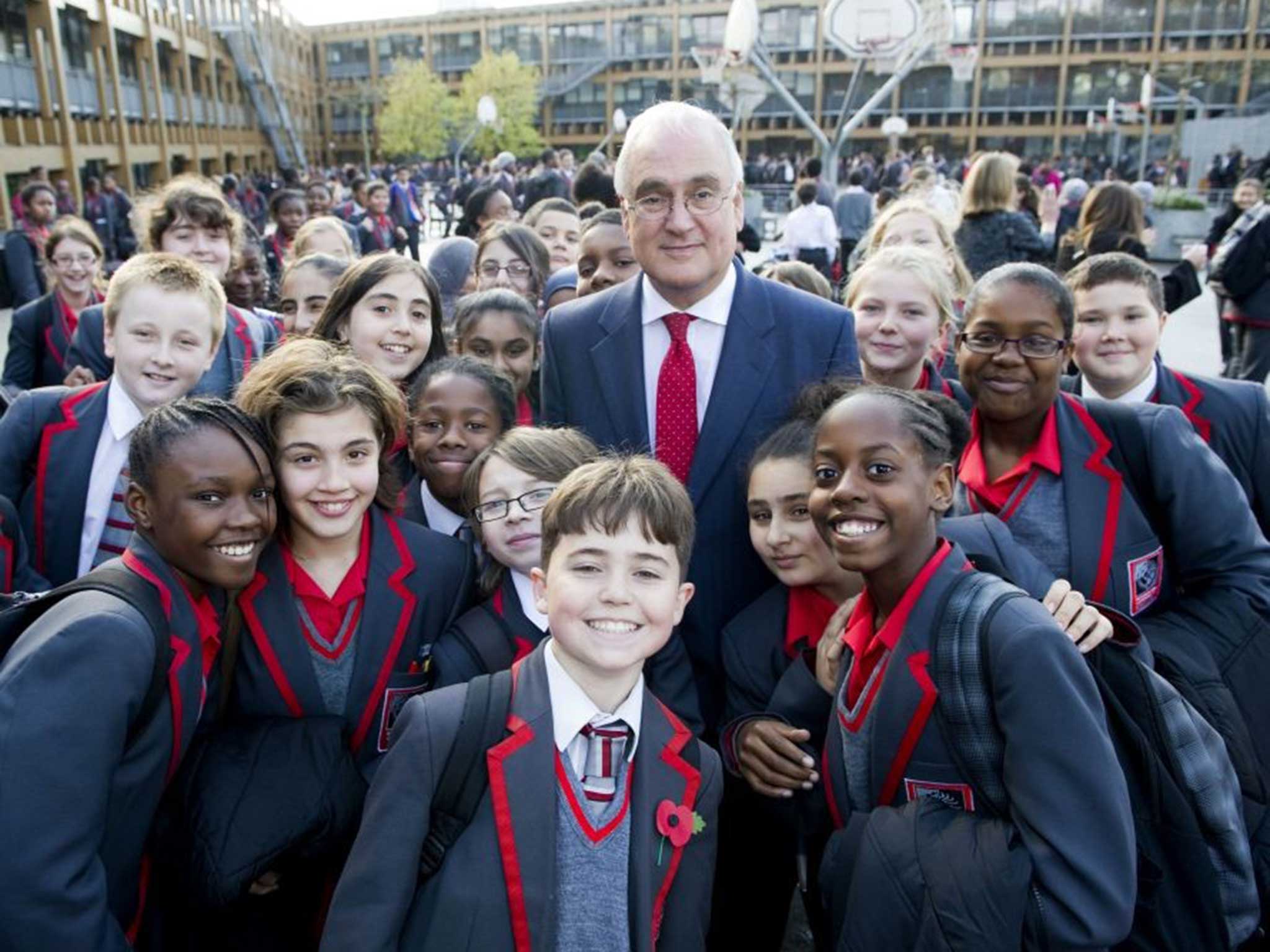It's ludicrous to accuse inspectors of a witch-hunt against faith schools
The head of Ofsted defends his staff's investigations into homophobic bullying

Your support helps us to tell the story
From reproductive rights to climate change to Big Tech, The Independent is on the ground when the story is developing. Whether it's investigating the financials of Elon Musk's pro-Trump PAC or producing our latest documentary, 'The A Word', which shines a light on the American women fighting for reproductive rights, we know how important it is to parse out the facts from the messaging.
At such a critical moment in US history, we need reporters on the ground. Your donation allows us to keep sending journalists to speak to both sides of the story.
The Independent is trusted by Americans across the entire political spectrum. And unlike many other quality news outlets, we choose not to lock Americans out of our reporting and analysis with paywalls. We believe quality journalism should be available to everyone, paid for by those who can afford it.
Your support makes all the difference.It’s often said that no one ever signed up to be an Ofsted inspector to boost their personal popularity ratings. The job of Her Majesty’s Inspectors is to report without fear or favour – to commend excellence where they find it, but also to hold up a mirror to poorly performing schools.
In my experience, inspectors are tough as teak. But they are also well trained, vastly experienced professionals, who absolutely understand the need to behave with sensitivity and integrity when talking to young people.
This is particularly important when they are following up serious allegations of prejudice-based bullying and derogatory name-calling, as in a number of recent, well-publicised cases. Inspectors had to couch questions using age-appropriate language that the children would understand in order to get to find out what was happening – and, crucially, to determine what the schools were doing about it.

The idea that this constitutes harassment of unsuspecting 10-year-olds or a sinister attempt to force a particular metro-liberal, politically correct orthodoxy on the nation’s schools couldn’t be more wrong.
Those who have accused Ofsted of being too heavy-handed in establishing whether these allegations have substance would be the first to criticise us if we had failed to uncover serious bullying.
And yet anyone basing their understanding of some recent inspections on a sample of the more lurid press reports would be forgiven for thinking Ofsted is rampaging through the education system on an aggressively secular mission to tear up the very fabric of England’s proud faith school tradition.
It’s a portrayal so far removed from the reality of how we conduct our inspections that it must have governors, leaders, teachers and children across the country scratching their heads in bafflement.
So allow me to restore some balance to the debate and to take on some of the claims that have been levelled at the inspectorate in recent weeks.
As a former headteacher of a Catholic secondary school, the charge that I am presiding over some sort of state-sponsored, anti-faith school “witch-hunt” would be laughable – were it not so serious. I have long been a staunch supporter and proponent of faith schools in this country, believing that they are a valuable and enduring feature of our education landscape.
Let me offer this unequivocal reassurance – the vast majority of faith schools have nothing to fear either from Ofsted or from the recent guidance issued by the Department for Education on promoting British values as part of the curriculum.
But don’t just take my word for it. Since the start of this academic year alone, Ofsted has inspected approximately 600 schools with a religious designation or character. Many of these schools have drawn praise from inspectors for quietly getting on with the task of ensuring all their children are being prepared for life in the complex, diverse society in which we now live.
Schools like Sinai Jewish Primary School in Brent, where inspectors found that pupils are “proud to be Jewish” but also “enjoy working with pupils from different ethnic and religious backgrounds”.
Or take St Ethelbert’s Catholic Primary in Slough, where last month inspectors praised a curriculum that “encourages pupils to see the world from different perspectives and has the notion of tolerance and mutual respect running through its core”.
And Tauheedul Islam Boys School in Blackburn, where inspectors recently noted that leaders had established an ethos in which students are encouraged “to live out their faith through a school culture based upon equality and philanthropy”.
And yet there seems to be a tendency on the part of an unrepresentative handful of schools – and their defenders – to presume that they are speaking up for many others by accusing Ofsted of all manner of inappropriate conduct and dubious motives.
Quite simply, I don’t accept that they are. As Chief Inspector, I am the first to concede that Ofsted is not perfect and certainly shouldn’t be above criticism. But I can’t help feeling that some of the criticism is being used as a smokescreen for the palpable weaknesses of leadership and management that inspectors sometimes observe.
Join our commenting forum
Join thought-provoking conversations, follow other Independent readers and see their replies
Comments